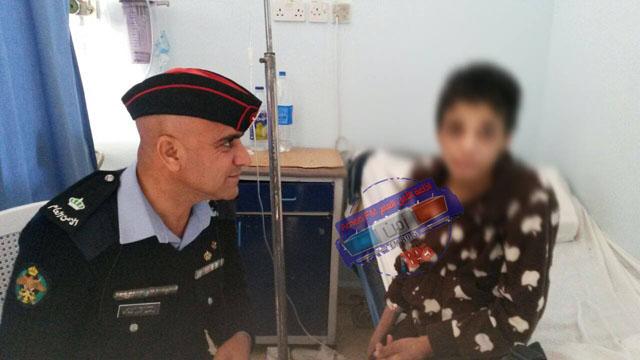You are here
Abuse of people with disabilities within families becoming ‘a worrying phenomenon’ — official
By Dana Al Emam - May 28,2015 - Last updated at May 28,2015
AMMAN — A recent abuse incident of a man with a mental disability in Irbid Governorate is an indication of the “inhuman” practices of some families towards disabled relatives, an official said Thursday.
On Wednesday, an Irbid resident called a show on Amen FM, the Public Security Department’s (PSD) radio station, claiming that his neighbours tie their mentally disabled son, who is around 35 years of age, to a tree during the day.
Social Development Ministry Spokesperson Fawaz Ratrout told The Jordan Times that a joint committee of Irbid’s PSD Family Protection Department and the ministry’s department in the governorate’s Kura District followed up on the case.
The PSD’s investigation concluded with the family signing a pledge not to abuse their offspring, who include another son who also suffers from a severe mental disability, and a daughter who is deaf, according to Ratrout, who noted that the family denied the neighbour’s claims.
“The family is not poor; their monthly income is around JD500; nonetheless, their children receive financial support from the National Aid Fund as well as social services,” he said in a phone interview, adding that the family does not want to send their children to a care centre.
Ratrout underscored the “dangerous” phenomenon of families abusing members with disabilities by neglecting them, and in some cases the negligence results in sexual assaults against females with mentally disabilities when they leave the house alone.
“Over the past two months the ministry removed eight individuals with disabilities from their families and admitted them into care centres due to abuse,” he said, noting that many of those receiving services at the care centres are rarely visited by their families.
Ratrout attributed family negligence to the fear of social stigma as well as the reliance on government services alone to care for people with disabilities.
International focus is now directed towards developing a family’s capabilities to deal with their disabled children at home instead of sending them to care centres, he said.
This early intervention approach is implemented through regular visits by teams of multidisciplinary specialists who work with children below six years of age at their residence, Ratrout explained, adding that the ministry has drafted similar regulations that are yet to undergo legislation procedures.
“Early intervention is the best way to prevent neglect of people with disabilities, especially since children who receive such services at an early age are able to enrol in school at the age of six,” he said, stressing the need to spread “systematic and scientific” awareness among parents.
Ratrout cited marriage of first cousins as a major contributor to the issue, citing cases of families with up to 10 disabled members that receive services at the ministry’s centres.
“Although marriages of close relatives have dropped from 57 per cent to 40 per cent over the past 10 years, further awareness is needed to lower the current number,” he said, calling for making pre-marriage tests of relevance obligatory in addition to the thalassemia test.
The Pre-Marital Blood Test Law obliges couples wishing to get married to carry out blood tests to ensure they are not afflicted with thalassemia in a bid to reduce the spread of the disease.
Related Articles
Nisreen, a 20-year-old woman with a mental disability, spent the past 15 years chained to the staircase in her family’s house, except at bedtime.
The Ministry of Social Development on Wednesday suspended seven employees over violations committed at the Karak Centre for Disability.
AMMAN — The Ministry of Social Development seeks to engage families of disabled children under six years in a home-based early intervention












